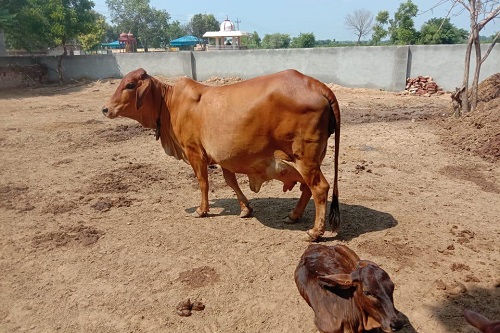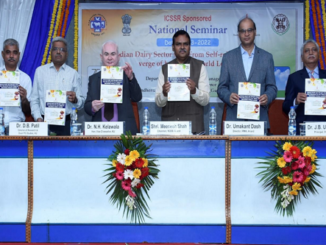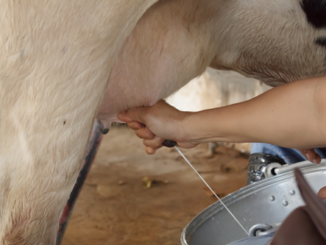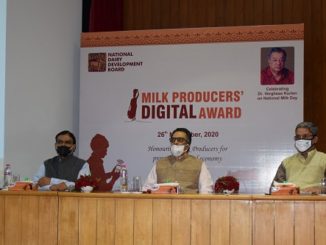As per Integrated Sample Survey average annual productivity of cattle in India during 2019-20 is 1777 kg per animal per year as against the world average of 2699 kg per animal per year during 2019 (as per FAO Statistics). Average productivity of cattle has increased by 27.95% between 2013-14 and 2019-20 which is highest increase in productivity in the World. In order to complement and supplement the efforts made by the States and Union Territories Government of India has been implementing following schemes to enhance milk production and productivity of bovines:
- Rashtriya Gokul Mission.
- National Dairy Plan-I (continued upto November, 2019).
- Breed Improvement Institutes comprising of 7 Central Cattle Breeding Farms and 4 Central Herd Registration Units.
In addition, Government is also implementing National Animal Disease Control Programme for control and eradication of Foot and Mouth Disease and Brucellosis in the country and Feed and Fodder Development under National Livestock Mission to enhance availability of feed and fodder in the country.
As per Integrated Sample Survey the average annual productivity of milk yield of cattle in Uttar Pradesh during the last three years is given in the following table:
| Year | 2017-18 | 2018-19 | 2019-20 |
| Average productivity of cattle in kg per animal per year | 1428.08 | 1449.81 | 1462.76 |
Department of Animal Husbandry and Dairying has been implementing National Livestock Mission and assistance is made available under the scheme to the States and Union territories for livestock insurance under the component of Risk Management and Insurance. The scheme covers indigenous / crossbred milch animals, pack animals (Horses, Donkey, Mules, Camels, Ponies and Cattle/Buffalo), and other Livestock (Goat, Sheep, Pigs, Rabbit, Yak and Mithun etc.). Scheme is optional not mandatory and implemented with following funding pattern: (i) Central share 25%, State share 25% and Beneficiary share 50% for Above Poverty Line (APL), and Central share 40%, State share 30%, and Beneficiary share 30% for Below Poverty Line (BPL) / SC / ST in Normal Areas; (ii) Central share 35%, State share 25% and Beneficiary share 40% for APL, and Central share 50%, State share 30%, and Beneficiary share 20% for Below Poverty Line (BPL) / SC / ST in North Eastern Region (NER) / Hill areas / Left Wing Extremism (LWE) affected areas and (iii) Central share 45%, State share 25% and Beneficiary share 30% for APL, and Central share 60%, State share 30%, and Beneficiary share 10% for BPL / SC / ST in Difficult Areas.

Information on number of cows being transported is not collected by Department of Animal Husbandry and Dairying. However, as per Livestock Census, 2020 total Milch cattle population has increased by 10.44% from 67.54 million in 2012 to 74.59 million in 2019. This is due to the programmes initiated by Government of India such as Rashtriya Gokul Mission for development and conservation of bovine population including cattle population in the country. This information given by the Minister of State for Fisheries, Animal Husbandry and Dairying Dr. Sanjeev Kumar Balyan.






Be the first to comment